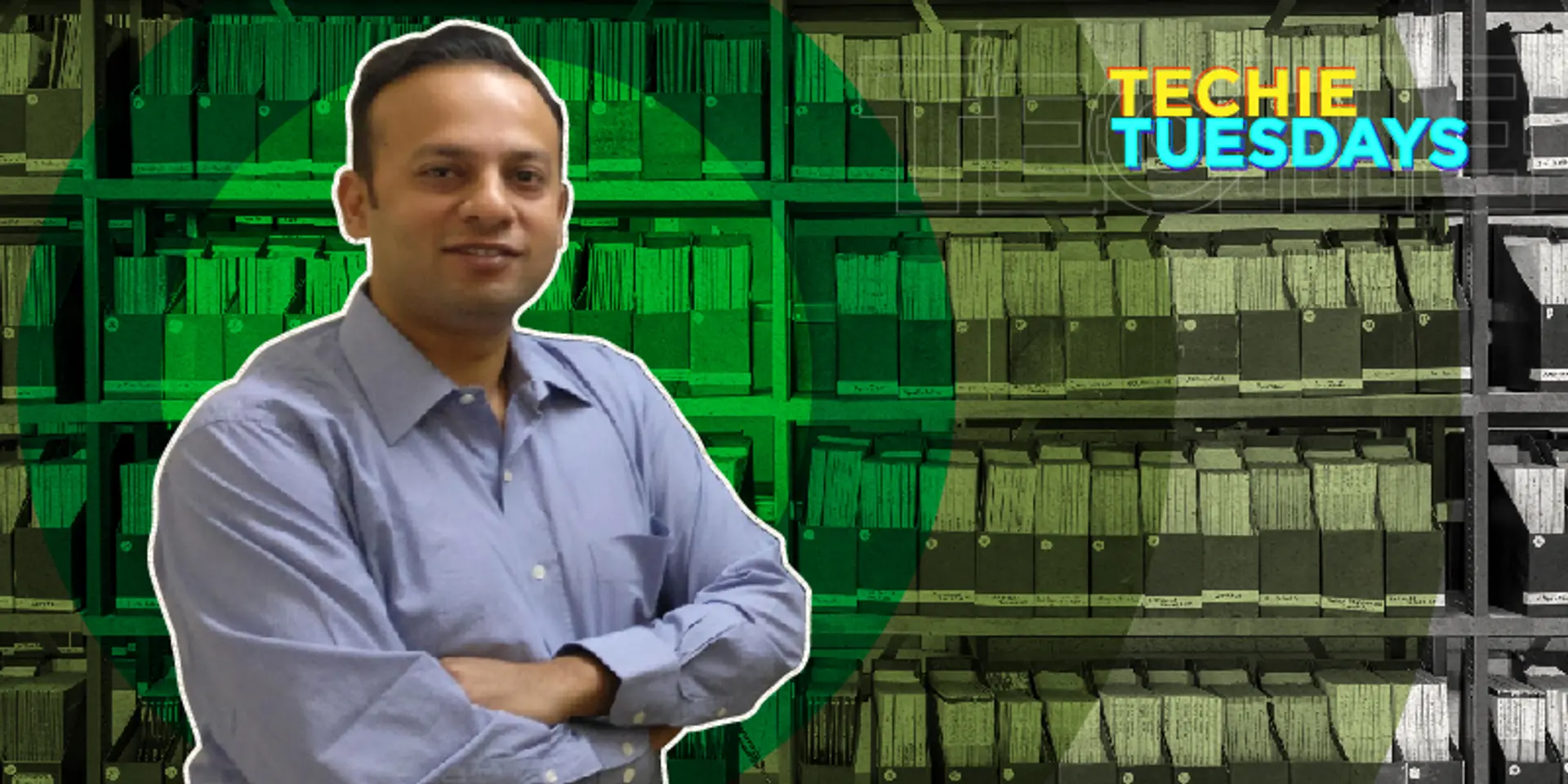How a marketing and sales person ended up as a digital czar—Ashish Gupta’s story
The star of our Techie Tuesdays this week, Ashish Gupta is the head of all things digital at PolicyBazaar. What separates him from the rest is his grip on operations, sales, marketing, and everything else a techie usually maintains a distance from. His 16-year career may include only eight years of tech roles but that doesn’t stop him from shaping the tech at one of India’s largest online insurance portals.
You could be a chemical engineer doing sales. You could be a sales and marketing person taking care of operations. You could be an operations guy working on technology. You could be a technology person leading product and digital marketing. But it takes an Ashish Gupta to be a chemical engineer and get into sales and marketing, run operations, learn technology, and lead all things digital at one of India’s largest startup setups.
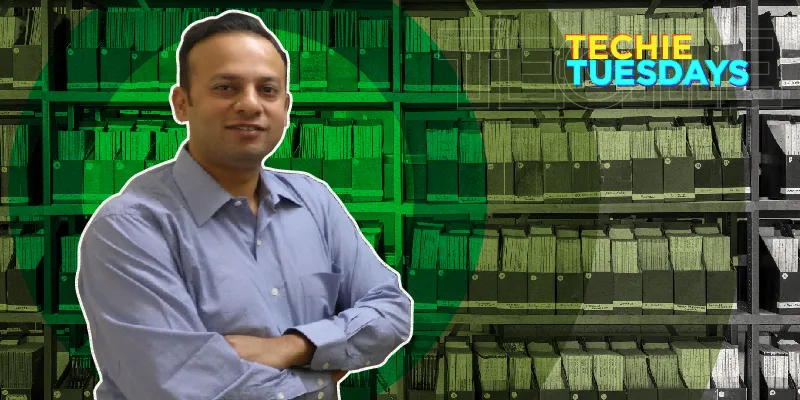
Our protagonist of the week, Ashish is unique in many ways. His confidence can easily be misconstrued as arrogance, but his attitude and experience across different roles is an asset for any company. As PolicyBazaar’s Chief Digital Officer, he is the CTO, CPO, and head of digital marketing.
YourStory spoke to Ashish to know more about his evolution as a techie and as a leader in his 16-year career.
Related read - How a small-town commerce graduate became CTO of a multibillion-dollar company
A reasonably uncomplicated and straightforward kind of person

Ashish’s father and grandfather served in the Indian Air Force and Indian Army, respectively. He was born in an Army Hospital in Udhampur in Jammu & Kashmir and moved to different locations owing to his father’s transfers. His mother was a schoolteacher, which is why there was a lot of focus on education. Before settling in Delhi (when his father got transferred to the Ministry of Defence) in 1998, Ashish spent his early days in Kasauli, Mt Abu, and Gwalior, where he was exposed to a variety of cultures. He says,
I'm a reasonably uncomplicated and straightforward kind of person. I wasn't a fussy kid. In fact, my mother tells me I was quite a delight.
He recalls wanting to become a doctor when he was in class IX but giving up on that dream upon realising the amount of studying it involved. However, the thought of working hard didn’t deter him when it came to preparing for IITJEE, and he made his way to IIT Delhi to study chemical engineering.
The interview
Ashish recalls his college days as the most event-less years of his life. It was like one nonstop party. He says, “We would start playing billiards at eight in the morning till late evening, followed by basketball, and even a bit of tennis. We even took the keys of the billiards room from its maintenance person since we spent more time there than him.”
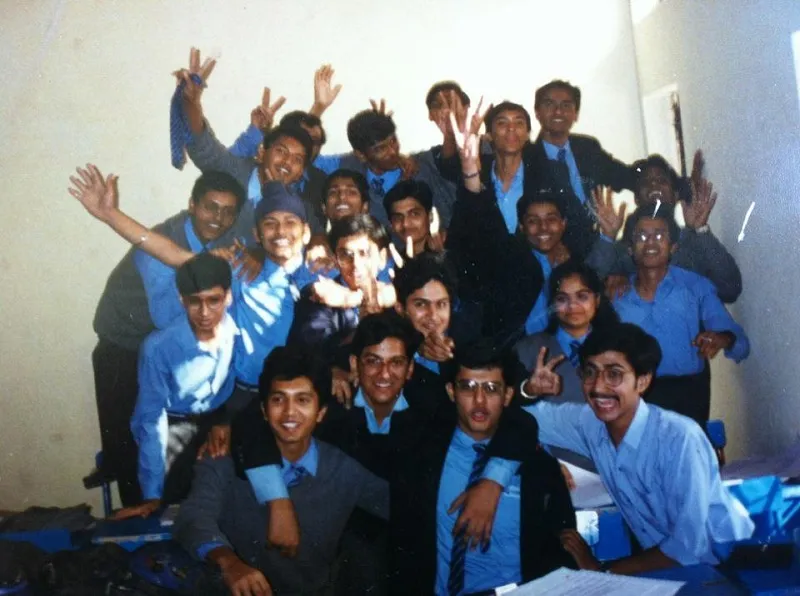
Except for his fourth-year B.Tech. project, college, for Ashish, was never about studies and it was only in his final year that he started thinking about his future. Since he wasn’t keen on pursuing further education in engineering, he was left with two options—doing an MBA or getting a job. As luck would have it, he got into IIM Lucknow and simultaneously received a job offer from ICI Paints (brand Dulux). He soon realised he wasn’t ready to sit in a classroom and let somebody tell him what to do, making his further course of action quite clear.
His parents were furious with his decision. They counselled him, shouted at him, and told him he was ruining his life. But Ashish wouldn’t listen. He says,
When I make a decision, I don't think much after that. I don't second-guess myself. I get decisions wrong at times, but I don't blame anyone.
He recalls his interview at ICI Paints as one of the highlights of his college days, “ICI Paints used to come only to recruit chemical engineering toppers. I was hopeless as, except for my degree, nothing about me qualified as a chemical engineer. Even when I cleared all the rounds and made it to the final interview, I didn’t have any expectations.”
His interview was an absurd experience. He adds, “The interviewer wrote a 12-digit number on a piece of paper and asked me to recall it after showing it for 10 seconds. I did that. Then he gave me another number and asked to keep subtracting a number from there till we reached zero and then continued till -140. I was doubtful as to why he was testing my ability to add and subtract when it was a core chemical engineering job. I thought may be he had had a long day and was having fun with me.”
He couldn't believe his luck when he found out about his selection, but not until he had joined that he was able unravel the mystery of the strange questions. It was only when he was assigned to the company’s product management and marketing division that it occurred to him that the company was looking at a non-engineering role and generally looking for smart people.
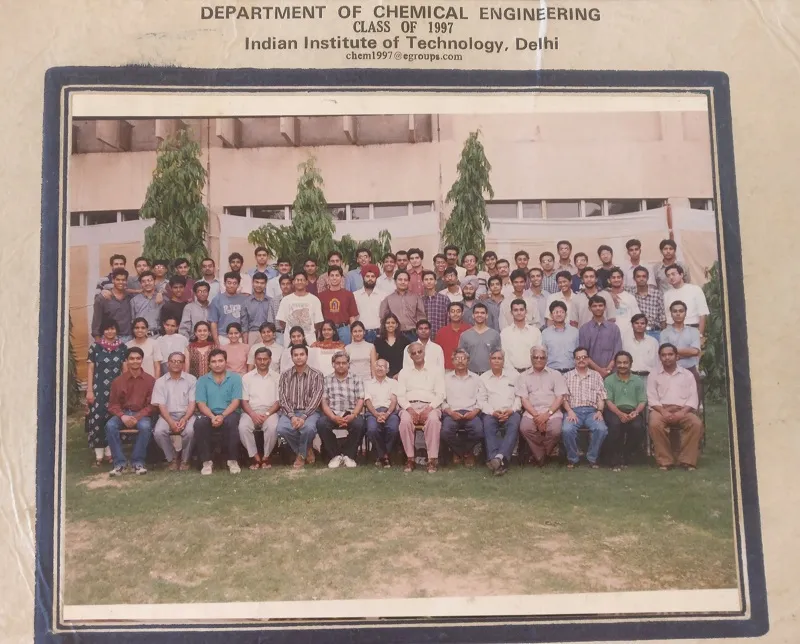
Related read - Meet Mitesh Agarwal—the ‘brain’ of BITS who’s heading technology at Oracle India
The first hour of the first job
Ashish believes the first year of the job made him who he is. He says, “After working for 16 years, being part of three startups (exited two), I feel my first year was the most important time of my career.”
Ashish attributes much of his learning to his boss Jaideep Mahajan. Within a few minutes of their first conversation, Jaideep asked Ashish to work on the design of the silicon wax container packaging that would go out to the consumer. Caught up in HR processes, Ashish couldn't start the work. He says, “He (Jaideep) blasted me. It was literally my first working hour. He gave a 15-minute lecture in the middle of the office on how this generation is useless and how we'd achieve nothing with this level of seriousness.”
This could have shaken any other person but Ashish simply said sorry and got going, and Jaideep soon explained everything to him. Ashish says, “I owe a lot to him because he's the guy who taught me to do everything on my own; to be self-reliant, frank, honest, and straightforward.”
To get anything done, Ashish had to fight with Jaideep as both had strong opinions. He adds, “He taught me it's not compulsory to say ‘yes, boss’ all the time.”
Also read - Meet Krishnan Narayanan, the techie who moved to mountains to code
'It didn't matter what I knew and what I didn't'
In his six years at ICI Paints (automotive division), Ashish went from being a management trainee to an area sales head (Delhi). He took the contribution of the products from 2-3 percent of the division's turnover to almost 50 percent (and about 70 percent of the division's gross margin). He was a one-man army, supported by Jaideep. He says, “I've physically produced paint myself (in R&D units), gone to garages and done product trials, painted panels of cars to convince painters that it was a good product. I purchased raw material, planned logistics, designed packaging, and got pamphlets and instruction manuals printed.”
He says,
It didn't matter what I knew and what I didn't know. Whatever I didn't know I would learn on the way. That gave me confidence.
Ashish was very clear that he wasn’t meant for sales even though he was good at it. He says, “It never gave me any sense of pride or achievement in life.” So, he moved back to the head office and later decided to explore options outside ICI Paints which better suited his interests.
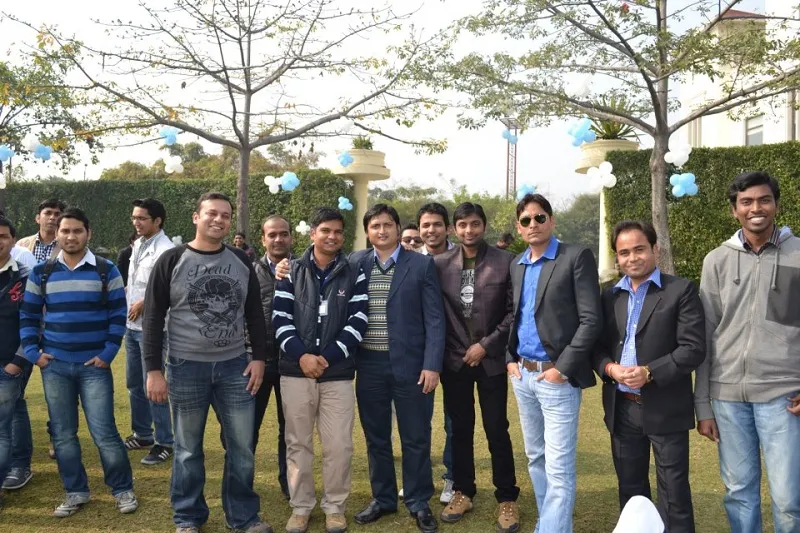
Entry to the startup world
Ashish was introduced to Amitabh Nagpal by a mutual friend. Already a successful entrepreneur, Amitabh was looking for a co-founder to start up with in India. Ashish didn't know about startups but wasn't scared of anything either. When Amitabh asked Ashish to join as the co-founder of Studyplaces, Ashish went with his gut. He recalls,
I thought it looked extremely interesting. It was something I had no clue about so I thought it would be fun. I felt it would be like my first year at work all over again.
Ashish was responsible for the company’s operations in terms of lead management, building the site, and digital marketing. He got in touch with Tekriti, a startup founded by his batchmates from IIT Delhi to build the website for Studyplaces. The company then raised $3 million from a group of investors and realigned their vision to further the suit the market. In a few months’ time, Ashish realised that his ideas for the future of the business did not match with those of his co-founder, and Studyplaces was eventually acquired by Educomp.
You may also like - From assembling computers to aggregating networks, how Srix Sriramkumar is solving India’s connectivity problem
Better late than never
Ashish’s tryst with technology started at Tekriti, where he was initially responsible for business development and client engagement.He recalls his first time coding: “It was for a project which was almost done but the guys got stuck with a bug for a few days. Finally, I asked the tech team to help me understand the problem so that I could explain it to the client.Luckily it was in PHP which was relatively easy to understand. I went through the code and in the next three hours, we solved the problem.” That broke the glass ceiling of technology for him. Later, he also realised that 80 percent of the projects at Tekriti were getting done fast but the remaining 20 percent took a lot of time owing to earlier mistakes.Eventually, he started reviewing all projects before they were begun.
Ashish says,
The world of technology keeps evolving fast, so my inexperience actually helped me. I learnt things from scratch.
He had a lot of suggestions for the tech team but in order to break the barrier of acceptance, he first learnt Drupal. He says, “When you haven't written a line of code yourself and try to have this conversation with the senior techies, there's a lot of resistance.” He went through the Drupal tutorials, made a website, built a few modules, and then went up to them.
In 2011, Tekritiwas acquired by Kelton Technologies. Ashish was then asked to move back to a formal business development role to build a BD and sales team. Unfortunately, it wasn't what he was looking for, and he decided to move on.
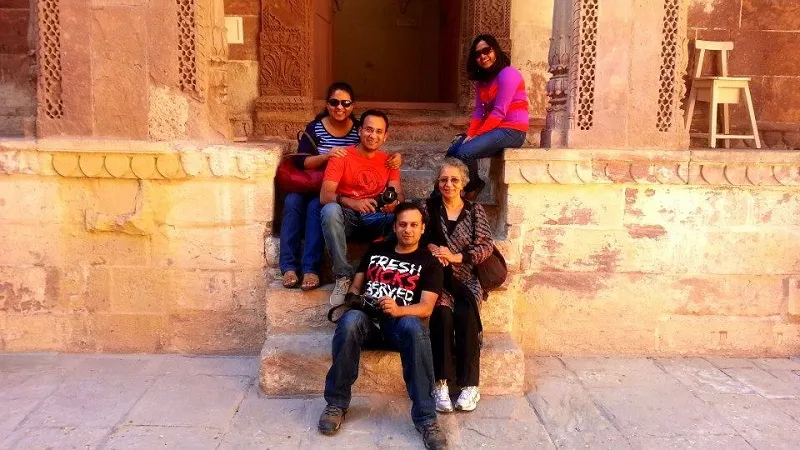
CouponVoodoo = MySmartPrice and CouponDuniya
Ashish started CouponVoodoo in 2013. The company had raised some amount from a seed fund. Since the founders didn’t have the budget to buy a premium domain, they went with CouponVoodoo. Ashish says, “We didn't want an obvious brand. ‘Voodoo’ wasn't known to a lot of people, so it offered a mystery element as well.”
CouponVoodoo’s algorithm was a marriage of MySmartPrice and CouponDuniya. Ashish explained, “For example, you could have a product that is priced at Rs 2,000 on Flipkart(with no coupon) and the same thing at Rs 2,200 on Infibeam(with a coupon which made the effective price Rs 1,800).CouponVoodoo helped you give that information.”
The tech stack had two halves—one was to get all the data and algorithms in place, and the other to show the data to the customer. The founders went with Drupal as the front-end to get more speed and simplicity. At the backend, they settled with Phantom and CasperJS for getting all the data in. Amazon cloud was used for rooting 400 servers every night(to get the information for price comparison) and to run the scripts in parallel. The glue layer was PHP which tied in the data, mapped it, and made it available for the Drupal front end.
CouponVoodoo started making Rs 8-10 lakh revenues and became profitable. There was some interest from partners (potential acqui-hire) as well but after two years, Ashish realisedthat it wouldn’t scale much. So, he decided to shut down.
Ashish then met Sameer Maheshwari, Co-founder of Healthkart, through his friend Prashant Tandon, Healthkart’s other co-founder who was then running 1mg. Healthkart was undergoing a transformation at that stage and Sameer needed a CTO. Ashish joined him at Healthkart and helped in the transformation from a pure-play widespread health portal to a nutrition supplement-focused platform. It was more of a strategy role in the beginning and there were a lot of open discussions as well. He recalls, “A lot of my work at Healthkart was breaking the barrier between technology and operations (or catalogue or management) team.”
He made the interaction between different divisions seamless. After his brief stint in the company, Ashish started looking for a more tech-focused role which, unfortunately, Healthkart wasn’t offering at that stage.
Related read - Sandipan Chattopadhyay — the statistician behind the 160x growth of Justdial
Making of the ‘Chief Digital Officer’
Ashish met Yashish Dahiya, Founder of PolicyBazaar, a couple of times before coming on board as their CTO.He was looking for someone who would give him(his)space and offer a people-focused set up. He says, “PolicyBazaar started as lead-generation business which moved to an interaction-based fintech model. There was still a lot to figure out and there was a large enough team that needed to be restructured and aligned to tech.”
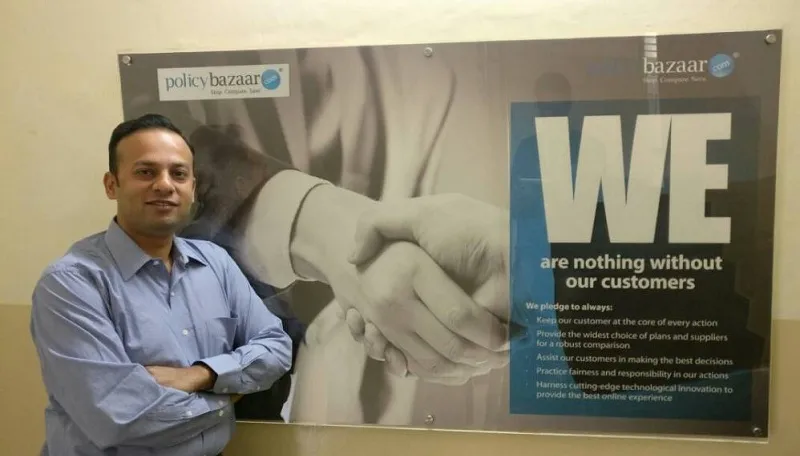
In his role at PolicyBazaar, Ashish is involved in operations, business, and marketing discussions as well. He has even acquired a reputation for being a person who mercilessly shuts down projects . He says, “If there’s no impact, there's no point running the project. I wanted to move technology from just building stuff to actually having business impact. So, each of my teams had value-creation goals.”
When he joined, 40 percent of the company’s traffic and 10-15 percent of their leads were coming from mobile. Now, almost 50 percent of traffic and almost 40 percent of the leads are coming via mobile. From zero contribution to business, the app now accounts for almost 15 percent of the leads and boasts more than a million downloads as well. It’s interesting to know that PolicyBazaar offers no exclusive incentives for app users.
Being the CTO, CPO, and head of digital marketing doesn’t create any bandwidth issues for Ashish. He believes that his background as a partner, co-founder, and even his stint at ICI have made him comfortable contributing to every aspect of the division he works for. In fact, he thinks it would have been difficult if marketing, product,and technology were separate. He says,
I don't get burdened by these multiple responsibilities. In fact, if someone asks me to take operations, I'll happily add that as well. I've never had a bandwidth issue in my life.
Also read - Baishampayan Ghose — the Agartala boy who is all set to become a farmer after co-founding 3 startups
Welcoming challenges and building for the future
The biggest challenge for Ashish at PolicyBazaar is to migrate the culture from being an assisted business to a self-served business. He believes it's not just a technical challenge but a mindset and cultural challenge as well. In his opinion, while it's great to respond to the requests raised by the sales team it needs to get to the next level now because a sales guy cannot be expected to think about chatbots or automated dialling.
Ashish shared some of the company’s plans for near future:
- Build a chatbot
- Offer a one-click experience where users can buy a policy without ever using a keyboard
- Voice analytics: The company receives more than 10 million minutes of talk time via its call centres every month. Ashish says, “This is a massive repository of phenomenal intelligence. We’re working to see if we can transcribe it and run sentimental analysis to get meaningful data to advise customers.” The biggest hurdle is that 70 percent of the calls take place in Hindi and the world of NLP and voice recognition hasn't evolved to include Hindi yet.
PolicyBazaar is now involved in a lot of advisory work for insurance companies where they tell them how to make their product better and more suited to customers(based on their interactions and feedback from customers). Ashish says, “We are an advisor but we don't want a broken experience for a customer when we take the customer to the partner. Now, for 80–90 percent of sales, you don't need to go to the partner site and can buy it on PolicyBazaar itself.” The company plans to add claim support and the early release of the Instaclaim feature is a step in that direction.
Using machine learning and NLP on the available data, Ashish is looking to automate a lot of the work so that the agent can focus on the call. He’s keen to automate consumer experience as well for both those who want to get on a call and for those who don’t.

Tech stack and hiring @ PolicyBazaar
PolicyBazaar’s upcoming chatbot is being built on Node.js. The company is also building optical character recognition, which is a combination of Node, MS SQL, and MongoDB. Some of its analytics is based on R(programming language) but now moving to Python. They moved from basic HTML to angular JS in the past and are now working in ReactJS. Ashish says, “At the end, people should not be .NET or Java developers.They should all just be technologists understanding quality and standards.”
The company has widely used MS SQL, .NET, and Java and is now exploring new technologies.
Ashish has also kick-started PolicyBazaar Labs, which demands a different work culture where the team members have to focus more on architectural, flexibility, and modular aspects.
The only thing Ashish sees in a person before hiring is hunger. He’s not a big believer in formal education and experience. He says,
In my startup journey I've seen that experience is detrimental in most of the cases and incremental in very few.
He gives importance to being transparent as well. He adds, “If you’re transparent, then I can at least go through your mind and intervene. Else, you'll continue to make mistakes and I won't be able to intervene.”
Decisions and guiding principles
After joining PolicyBazaar, he got rid of hierarchy first and created a culture where any fresher can walk in and speak directly to him or the founders.
He has now created an alignment between tech and business which gives a clear direction to the tech team with an ability to think and make decisions. He has instilled the belief in the tech team that a stable, smoothly functioning platform is not the end and you've got to be pushing the status quo and challenging yourself.
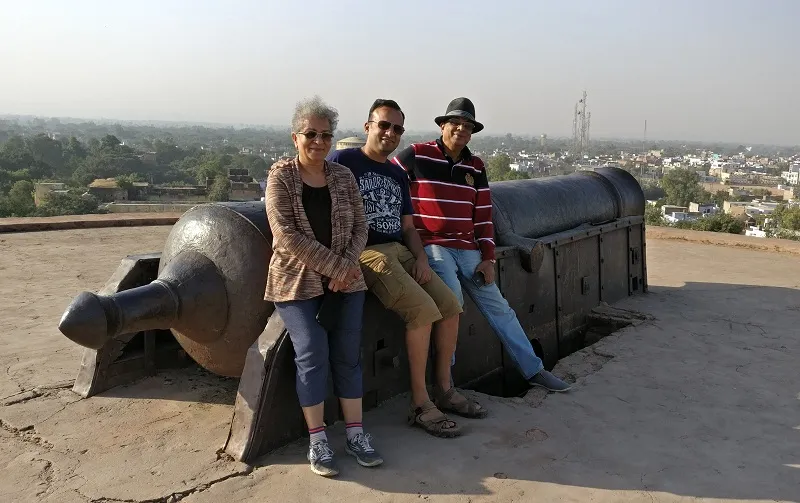
Ashish doesn’t follow a methodology or philosophy to back his decisions. He says,
My biggest guiding principle is that there shouldn't be any guiding principles in life. Somewhere I think that a structured approach to decision making is just something that some people have come up with to make themselves sound intelligent.
He adds, “You just have to be brutally honest. You should be humble enough to review what you've built and not be defensive.”
Ashish is a very quick decision maker. He says,
Somewhere in my mind, I know that I don't know anything about this, and thinking too much won't make any difference.
Backing his instincts and avoiding over-thinking saves him a lot of energy, time, and bandwidth.
For Ashish, technology is a medium to bring idea to life and to turn visions into reality.
He says, “I don't get emotionally attached to what I've done. If something made sense yesterday and doesn't make sense today, I’ll dump it. In my books, the only thing that makes sense today is what you want to do tomorrow.”
Ashish has been known for having the ability to deliver. He says,
To me, what matters most is that for every role I've taken up, if 10 people can stand up and say I made their lives better(any aspect) or made them capable of running their lives better, my mission is complete.
You can connect with Ashish on LinkedIn.


